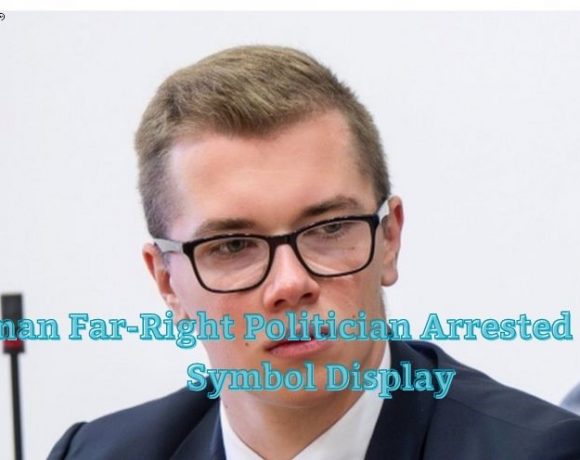
A young politician from the far-right in Germany was arrested on allegations of displaying Nazi symbols, specifically after the “Sieg Heil” phrase was heard from the headquarters of a fraternity he is associated with. Daniel Halemba, who was elected to the Bavarian parliament recently, was detained just hours before he could gain immunity as an Alternative for Germany (AfD) MP during the parliamentary swearing-in. However, he was later released as a judge deemed him not a flight risk.
Halemba is among the 32 AfD members elected, marking the party’s best-ever performance in Bavaria, where it now stands as the largest opposition party. His immunity was lifted by the new legislature on Monday, but he expressed his intent to engage in parliamentary proceedings.
The police conducted a raid in Würzburg last month at the Teutonia Prag student fraternity’s premises following complaints from neighbors about hearing “Sieg Heil” chants from within. The police confirmed the allegations and confiscated prohibited material. Halemba is currently under investigation for suspected sedition and possessing banned symbols, both of which are unlawful in Germany. Prosecutors also suggested that he might have attempted to influence other fraternity members to alter their statements.
In a video shared on social media prior to his arrest, Halemba criticized the authorities, claiming that they were using an unjust arrest warrant against him. His lawyer, Dubravko Mandic, rejected the allegations, labeling them as baseless. Katrin Ebner-Steiner, the leader of the AfD in the Bavarian parliament, denounced the prosecution as politically motivated.
The AfD has recently witnessed record election results, securing the third position in the Bavarian elections and the second position in the state of Hesse. The party is consistently polling second nationwide, with Germany’s next federal election scheduled for 2025.
Picture Courtesy: Google/images are subject to copyright

